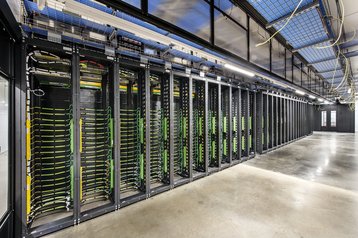According to IDC, cloud IT infrastructure spending will reach $32 billion in 2015, accounting for 33 percent of all IT infrastructure spending. These statistics show just why an explosive growth in technology, while boosting the data center market, will not benefit all data center operators equally. Quite simply, the technology boom is focused on cloud infrastructure.
If you own a colocation-only data center, your share of market growth is slowing down and from a real estate perspective, i.e. the amount of total sq. ft. you own, will eventually start to contract. The current status quo of huge demand for colocation space is a transitional phase in the market’s evolution.
Goodbye to the enterprise model
We are gradually moving from the old enterprise model, of owning everything from the IT staff down to the building and equipment, to a new model of buying services from a cloud provider. When corporate CFOs decided that owning a data center was a cost risk they could eliminate, CIOs could still justify owning the servers, software and staff to manage them. The need for somewhere to put all that expensive tin led to the colocation market’s current strong position.
Yet the same financial decisions which started to kill the enterprise data center are now being applied to colocation in turn. You only need to look at the experience of “Tier 1” server vendors to see what’s on the horizon. As technology commoditizes, enterprises have realized that servers only need to do what it says on the box; leaving a “Tier 1” badge as an expensive extra.
The same has already happened in the world of retail. HMV was once a hugely successful high street brand, but suffered a massive drop in fortunes when its market became increasingly commoditized. Rather than buying CDs and DVDs on the high street, shoppers realised they could access the same products at a lower cost and greater convenience; whether through online retailers like Amazon and eBay or new services such as iTunes or Netflix. While entertainment is still a booming industry, HMV has seen its share plummet.
The growth of the cloud places colocation providers in the same boat as HMV and the Tier 1 server vendors. While once successful as the alternative to an expensive, in-house data center, they risk being left behind as technology and the market evolve around them.



